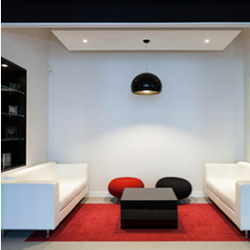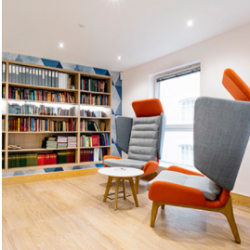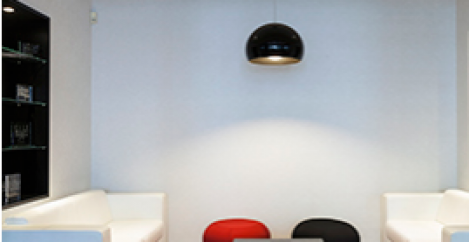October 20, 2020
The changing office landscape: what tenants want from their workspace
 A new report, released by workplace design consultancy, Peldon Rose, takes a look at the changing needs of office users as a result of the Covid-19 pandemic. “The Office of the Future” report, commissioned in conjunction with workplace strategy and employee engagement specialists, WKspace, examines the impact on the pandemic has had on the changing needs of tenants.
A new report, released by workplace design consultancy, Peldon Rose, takes a look at the changing needs of office users as a result of the Covid-19 pandemic. “The Office of the Future” report, commissioned in conjunction with workplace strategy and employee engagement specialists, WKspace, examines the impact on the pandemic has had on the changing needs of tenants.
There is no doubt Covid-19 has changed the working habits for the majority of people in the UK, with lockdown restrictions forcing office-goers to set up temporary workspaces in their homes. Yet, despite continued declarations of a ‘work from home revolution’, the latest findings suggest that even with the growing trend towards agile working, and new government guidelines advising people to work from home when possible, the physical office is here to stay in the long-term, which suggests the need for landlord operated spaces isn’t going away.
But while it’s clear that the office still remains important, when people do return to the office, tenants will be expecting certain new measures within a workplace that promote social distancing and ensure employees feel safe and comfortable in the working environment. The data claims that only 6 percent of respondents would choose hot desking in the workplace, which suggests this once popular collaborative working style is now going out of favour. This move away from close co-working is further supported by almost half (48 percent) of respondents who stated they now want a private office/co-working space with a quieter section away from noise and distraction.
[perfectpullquote align=”right” bordertop=”false” cite=”” link=”” color=”” class=”” size=””]”The office is so much more than just providing people with a computer and a desk.”[/perfectpullquote]
As well as changes to the physical environment itself, there may also be changes to the way people rent spaces. 52 percent of respondents want a mixture of home and office working, this could mean that long term leases are a thing of the past and we’ll see the growing popularity of shorter-term leases.
When it comes to productivity, the data claims that 48 percent of business leaders admitted that employee motivation has proved to be the greatest challenge, while 33 percent have said that productivity has been adversely impacted within their workforce.
This is unsurprising, considering that the much-needed interpersonal connection at work has been taken away, which is not only noticeable from a productivity point of view, but also from a development one. 89 percent of respondents reported that it is important to learn from colleagues they work alongside for their own job satisfaction as well as for overall business productivity.

Jitesh Patel, CEO, Peldon Rose, said: “We’ve always understood the importance of creating agile working environments for clients and we understand the office is so much more than just providing people with a computer and a desk. In many ways, the pandemic is accelerating the process of making businesses think more creatively about the spaces they work from, and that’s the future.”
It’s also no secret that lockdown has had an impact on wellbeing, particularly due to decreased human interaction and for many, working from home has only reduced their human contact further. In fact, a quarter of respondents (25 percent) said that their wellbeing has been negatively impacted as a result of working from home, showing just how important the office can be for employee happiness, which shows that more than ever businesses will want their offices to support the needs of their teams.
Kevin Wither, Head of Landlord, Peldon Rose, said: “With businesses wanting to take more control over the spaces they occupy, in many ways we’re seeing a complete shift from the socially-driven workplaces that were popular just a few months ago. If landlords want to ensure their locations remain occupied and attractive to tenants, it’s important that these new ways of thinking are applied to their buildings, putting the time and effort into the design of a space to meet all of the needs of users will ultimately be recognised by tenants, and help to provide an improved ROI.”













